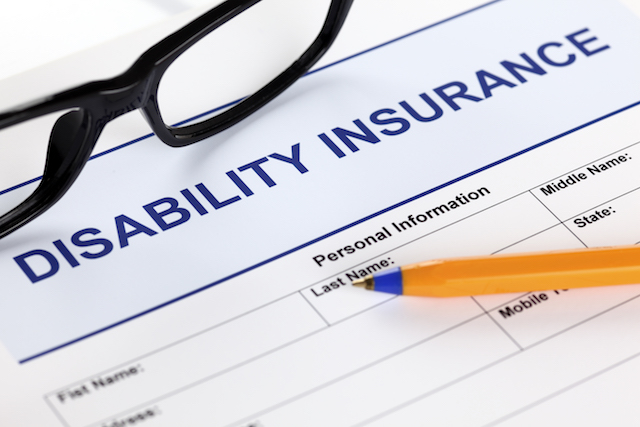Can You Get Disability Benefits When Over 50 in Pennsylvania?
Disability is an important system to have in place for all workers. Age often affects your ability to work – especially if you suffer from a health condition or injury that makes working more difficult. Disability benefits from the Social Security Administration (SSA) take age into account in a way that can often help older adults.
If you are over 50, the SSA might take your age into account when determining whether or not you are able to work. In many cases, advanced age can be a helpful factor in applying for disability, with the SSA more readily applying the “disabled” label to workers over 50. If you are over 55, age will definitely be a factor that could help you get disability benefits.
If you are considering applying for disability benefits in Pennsylvania, contact Young, Marr, Mallis & Associates. Our Pennsylvania disability lawyers offer free case reviews. Call today at (215) 515-2954.
Can People Over 50 Apply for SSDI in Pennsylvania?
SSDI is Social Security Disability Insurance. The SSA administers this program, which takes tax dollars from Social Security/FICA taxes and applies them as insurance premiums to be used later to pay out benefits to disabled workers. To apply for SSDI, you usually need to have a work history. Otherwise, you can apply for SSI (Supplemental Security Income), which is a need-based disability program. Many disabled people over 50 will qualify for SSDI.
Workers over 50 tend to have more “work credits” than younger workers, making them eligible for benefits through SSDI. When you work and pay your Social Security taxes, you accrue “work credits” in the SSDI system. If you have enough work credits, the SSDI can pay you benefits if you become disabled. This means that workers over 50 are usually the prime candidates for SSDI benefits.
If you were a stay-at-home parent or spent much of your time without a job outside the home, then you might not have work credits of your own. This could prevent you from qualifying for SSDI, but SSI’s need-based disability program might provide you with what you need instead.
Ultimately, many people over 50 are able to apply to the system, but qualifying for a disability requires looking at other factors aside from just your age and your work history.
Qualifying for Disability Benefits While Over 50 in Pennsylvania
To qualify for SSDI benefits, you need to show that you are “disabled.” That may sound simple if you are in a wheelchair or have an obvious disability from an injury or medical condition, but it’s not always as simple as it should be.
Definition of “Disabled”
For the SSA to consider an applicant “disabled,” they must be unable to work to support themselves. This means that they cannot achieve “substantial gainful employment” (SGA) because of their medical condition. The SSA uses an “SGA limit” to determine whether you meet this requirement: workers who are unable to earn at least $1,350 per month ($2,260 if they are also blind) are potentially considered “disabled”. This is the 2022 number (up from $1,310 for non-blind applicants and $2,190 for blind applicants in 2021).
Ability to Work
If you are not able to work at your current job, the SSA will also look at whether you can potentially perform other jobs instead. This especially means looking at past jobs you performed, which you conceivably already have the training and experience to go back to. If you cannot work in your current job but can work a former job, the SSA might expect you to do that instead of getting disability benefits. If you can work another similar job, the SSA might similarly expect you to do that instead.
Age Considerations
However, this is where people over 50 sometimes have an advantage in applying for disability. It is harder to retrain for a different job if you are older, especially when dealing with a disability. Because of this, the SSA will take age into account starting with people aged 45-49. If you are 50-54 years old, the SSA will consider this an even bigger factor in determining your ability to adapt to other work. This is an even bigger factor for workers over 55, who are even closer to retirement age and unlikely to be able to suddenly retrain for a new job while dealing with a disability.
Qualifying Conditions
The SSA keeps a list called the “Blue Book” that details all of the qualifying conditions for disability. Conditions like cancer, multiple sclerosis, ALS, liver disease, kidney disease, and certain forms of heart disease can all be qualifying conditions that could allow someone to claim disability benefits. Mental health issues like severe depression can also potentially qualify you for disability benefits.
Some of these conditions are often tied to age and are more likely to occur in older adults over 50. Otherwise, severe injuries that lead to paralysis or severe brain damage could also qualify you for benefits – and these can happen to anyone regardless of age.
In any case, conditions must be expected to last for over a year or end in the death of the patient to qualify for disability. If your condition is not listed, you may be able to apply for an exception that will get you benefits if you have a condition similar in severity to one of the conditions listed in the Blue Book.
Social Security Disability Benefits vs. Retirement Benefits in Pennsylvania for People Over 50
Many people over 50 are concerned that they might not qualify for disability benefits or that these benefits might interfere with their ability to get Social Security after retirement. Both SSDI and SSI provide essentially the same payments as retirement benefits through Social Security (also technically administered under the umbrella of SSI).
Retirement benefits are not fully vested until you reach the full retirement age – usually around 65. If you retire early and start claiming Social Security early, you will usually receive reduced payment amounts since the SSA needs to stretch the same total Social Security benefits over more years. If you retire later than 65, your benefits might be higher per payment.
Claiming disability benefits is an exception to this usual rule. If you get disability benefits, you will essentially receive the same monthly benefits as if you had retired at full retirement age. This ultimately means that receiving SSDI or disability over 50 does not usually hurt your Social Security retirement benefits; you essentially start receiving them earlier at their full value. However, the benefits will be based on your current income level rather than the income level you might have attained if you could have kept working until full retirement age.
For Help applying for Disability Over 50, Call Our Attorneys
The Philadelphia disability lawyers at Young, Marr, Mallis & Associates offer free case evaluations to help disability applicants across the commonwealth. For your free case evaluation, call us today at (215) 515-2954.






























